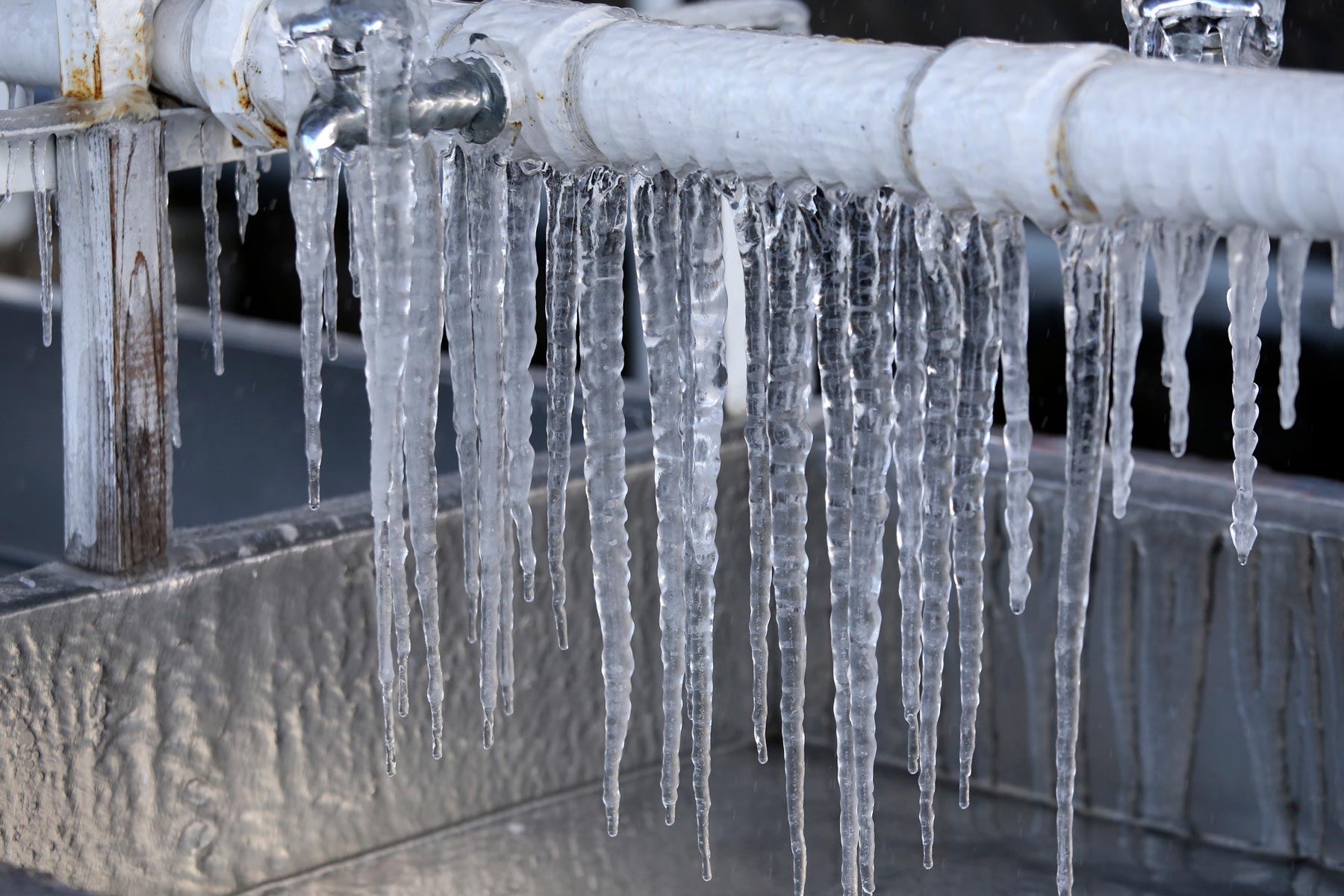Key Approaches for Avoiding Frozen Pipes in Winter
Key Approaches for Avoiding Frozen Pipes in Winter
Blog Article
How do you actually feel on the subject of Helpful Tips to Prevent Frozen Pipes this Winter?

Cold weather can wreak havoc on your pipes, particularly by freezing pipelines. Right here's just how to avoid it from happening and what to do if it does.
Intro
As temperature levels decrease, the threat of frozen pipelines increases, possibly resulting in costly fixings and water damage. Recognizing just how to stop icy pipes is essential for home owners in cold climates.
Prevention Tips
Protecting susceptible pipes
Cover pipelines in insulation sleeves or make use of warmth tape to shield them from freezing temperature levels. Concentrate on pipelines in unheated or external locations of the home.
Home heating methods
Keep interior spaces effectively heated up, particularly areas with pipes. Open up cupboard doors to allow cozy air to distribute around pipes under sinks.
Just how to determine frozen pipelines
Search for lowered water flow from taps, unusual smells or noises from pipelines, and visible frost on revealed pipes.
Long-Term Solutions
Architectural adjustments
Think about rerouting pipelines away from outside wall surfaces or unheated areas. Add added insulation to attics, basements, and crawl spaces.
Upgrading insulation
Purchase high-grade insulation for pipes, attics, and walls. Correct insulation helps preserve constant temperatures and decreases the threat of frozen pipelines.
Protecting Outside Plumbing
Yard hose pipes and outside taps
Disconnect and drain yard pipes prior to winter months. Install frost-proof spigots or cover outdoor faucets with shielded caps.
Understanding Frozen Pipes
What causes pipes to freeze?
Pipelines ice up when subjected to temperature levels listed below 32 ° F (0 ° C) for extended periods. As water inside the pipes ices up, it broadens, putting pressure on the pipeline walls and possibly triggering them to rupture.
Dangers and damages
Frozen pipes can lead to water disturbances, residential property damage, and expensive repairs. Burst pipes can flood homes and create comprehensive structural damage.
Indications of Frozen Pipeline
Recognizing icy pipes early can avoid them from breaking.
What to Do If Your Pipes Freeze
Immediate activities to take
If you believe icy pipes, keep taps open to ease pressure as the ice thaws. Make use of a hairdryer or towels soaked in warm water to thaw pipes slowly.
Conclusion
Avoiding icy pipes requires proactive measures and fast actions. By recognizing the reasons, indicators, and preventive measures, homeowners can safeguard their plumbing during cold weather.
Helpful Tips to Prevent Frozen Pipes this Winter
UNDERSTANDING THE BASICS: WHY PIPES FREEZE AND WHY IT’S A PROBLEM
Water freezing inside pipes is common during the winter months, but understanding why pipes freeze, and the potential problems it can cause is crucial in preventing such incidents. This section will delve into the basics of why pipes freeze and the associated problems that may arise.
THE SCIENCE BEHIND FROZEN PIPES
When water reaches freezing temperatures, it undergoes a physical transformation and solidifies into ice. This expansion of water as it freezes is the primary reason pipes can burst. As the water inside the pipe freezes, it expands, creating immense pressure on the walls. If the pressure becomes too great, the pipe can crack or rupture, leading to leaks and water damage.
FACTORS THAT CONTRIBUTE TO PIPE FREEZING
Low Temperatures: Extremely cold weather, especially below freezing, increases the risk of pipes freezing. Uninsulated or Poorly Insulated Pipes: Pipes located in unheated areas, such as basements, crawl spaces, or attics, are more prone to freezing. Insufficient insulation or lack of insulation altogether exacerbates the problem. Exterior Wall Exposure: Pipes running along exterior walls are susceptible to freezing as they encounter colder temperatures outside. Lack of Heating or Temperature Regulation: Inadequate heating or inconsistent temperature control in your home can contribute to frozen pipes. PROBLEMS CAUSED BY FROZEN PIPES
- Pipe Bursting: As mentioned earlier, the expansion of water as it freezes can cause pipes to burst, resulting in significant water damage.
- Water Damage: When pipes burst, it can lead to flooding and water damage to your property, including walls, ceilings, flooring, and personal belongings.
- Structural Damage: Prolonged exposure to water from burst pipes can compromise the structural integrity of your home, leading to costly repairs.
- Mold and Mildew Growth: Excess moisture from water damage can create a favorable environment for mold and mildew growth, posing health risks to occupants.
- Disrupted Water Supply: Frozen pipes can also result in a complete or partial loss of water supply until the issue is resolved.
WHY CERTAIN PIPES ARE MORE PRONE TO FREEZING
- Location: Pipes located in unheated or poorly insulated areas, such as basements, crawl spaces, attics, or exterior walls, are at higher risk of freezing.
- Exterior Pipes: Outdoor pipes, such as those used for irrigation or exposed plumbing, are particularly vulnerable to freezing as they are directly exposed to the elements.
- Supply Lines: Pipes that carry water from the main water supply into your home, including the main water line, are critical to protect as freezing in these lines can affect your entire plumbing system.
- Underground Pipes: Pipes buried underground, such as those connected to sprinkler systems or outdoor faucets, can be susceptible to freezing if not properly insulated.
https://busybusy.com/blog/helpful-tips-to-prevent-frozen-pipes-this-winter/
:strip_icc()/snow-outdoor-faucet-pipes-4af65d1e5e904fb1aa7bf74071fe5d89.jpg)
Do you appreciate reading up on How to prepare your home plumbing for winter weather? Try leaving a remark directly below. We will be happy to see your insights about this entry. We hope that you come back again soon. Do you know about another individual who is excited by 6 Ways to Prevent Frozen Pipes? Be sure promote it. Thanks so much for taking the time to read it.
Call Today Report this page